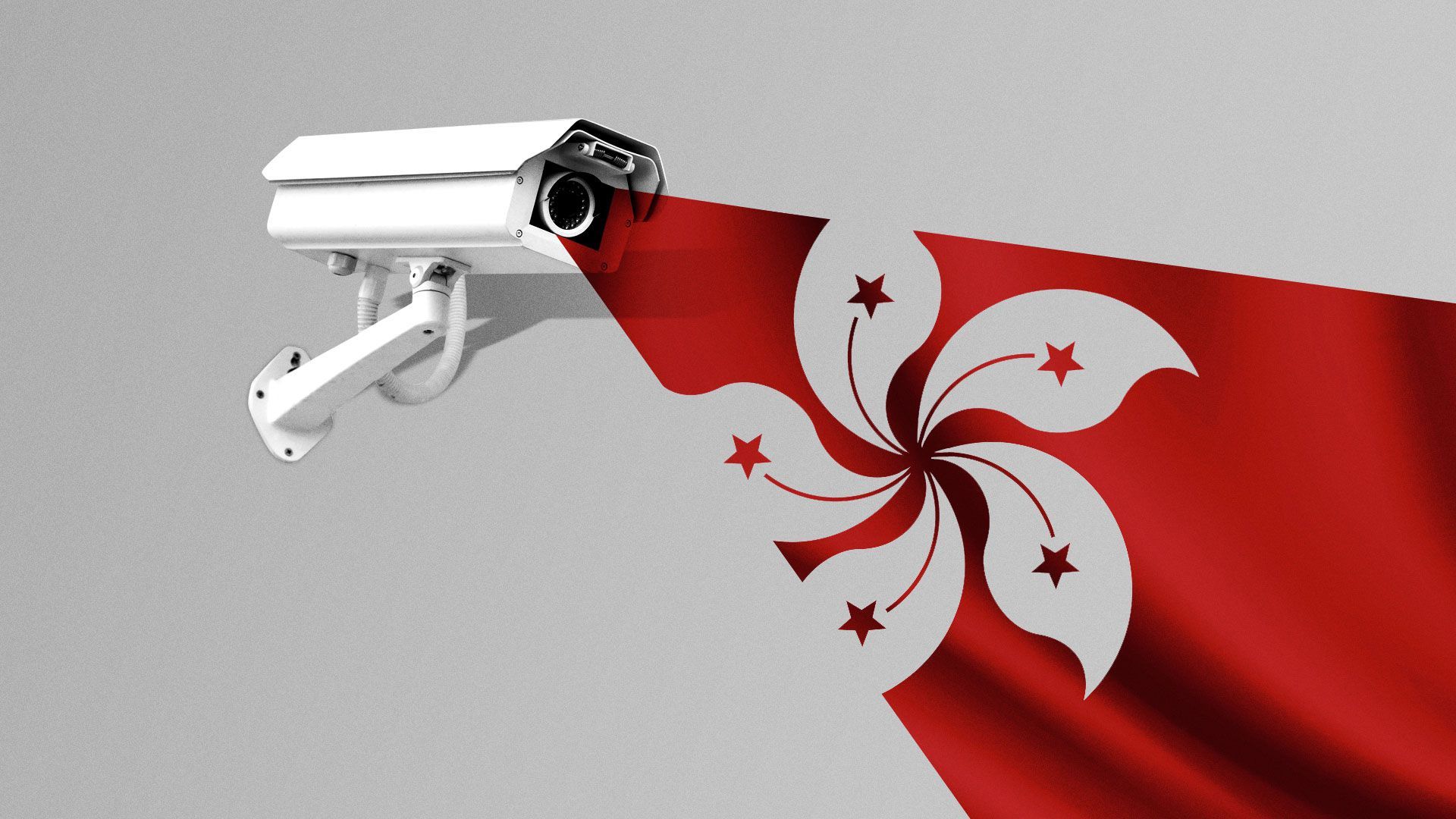China’s spy agencies are coming to Hong Kong
Add Axios as your preferred source to
see more of our stories on Google.

Illustration: Eniola Odetunde/Axios
Chinese intelligence officers have been covertly operating in Hong Kong for years, but Hong Kong’s new national security law means Beijing’s spies will likely establish a more official presence there.
Why it matters: Allowing mainland China’s security and intelligence services to operate with impunity in Hong Kong would dramatically reduce the political freedoms enshrined in the “one country, two systems” agreement that was supposed to provide the region with a high degree of autonomy until 2047. This could endanger Hong Kong-based pro-democracy figures and other local anti-Communist Party dissidents.
What’s happening: A draft of the new national security law states, “When needed, relevant national security organs of the Central People’s Government will set up agencies” in Hong Kong.
Background: The Ministry of State Security (MSS), China’s foremost intelligence and political security agency, is notoriously brutal.
- It operates both domestically and abroad, monitoring political and criminal targets, detaining and torturing those deemed threats to the state, and performing traditional espionage.
The national security law likely means China’s security and intelligence officers could legally be allowed to pursue targets in Hong Kong in one of two ways.
- Extradition: The security law could pave the way for establishing a framework for extradition from Hong Kong to China. This would mean that Chinese security agencies would have to submit extradition requests to Hong Kong authorities, and cases would go through Hong Kong’s courts before a target could be sent to mainland China.
- Rendition: In a darker scenario, mainland security officers could apprehend individuals and simply take them over the border to the mainland for interrogation or imprisonment.
- “There have already been several known cases of Chinese intelligence officers operating in Hong Kong and Macao taking people over the border,” said Rodney Faraon, a partner at Crumpton Group and former senior CIA officer. “But these have always been officially denied.”
- The most infamous recent case is that of Causeway Bay Books, a well-known bookstore and monument to press freedom, whose employees were kidnapped from Hong Kong and elsewhere and detained in mainland China in 2015. (The bookstore was subsequently forced to relocate to Taiwan.)
But a formal presence for the MSS in Hong Kong doesn’t necessarily mean a visible one.
- "Even in China they can be pretty quiet and don't try to build a large overt presence, preferring to work through fronts and proxies,” said Alex Joske, an analyst at the Australian Strategic Policy Institute.
“If Chinese intelligence agencies are allowed to operate openly and officially, then that becomes an alternative center of power to the law enforcement agencies that the Hong Kong government currently has, one that would undoubtedly have legal primacy in the jurisdiction,” said Faraon.
- “It would be the subversion of the role that Hong Kong law enforcement is supposed to play under one country two systems.”

